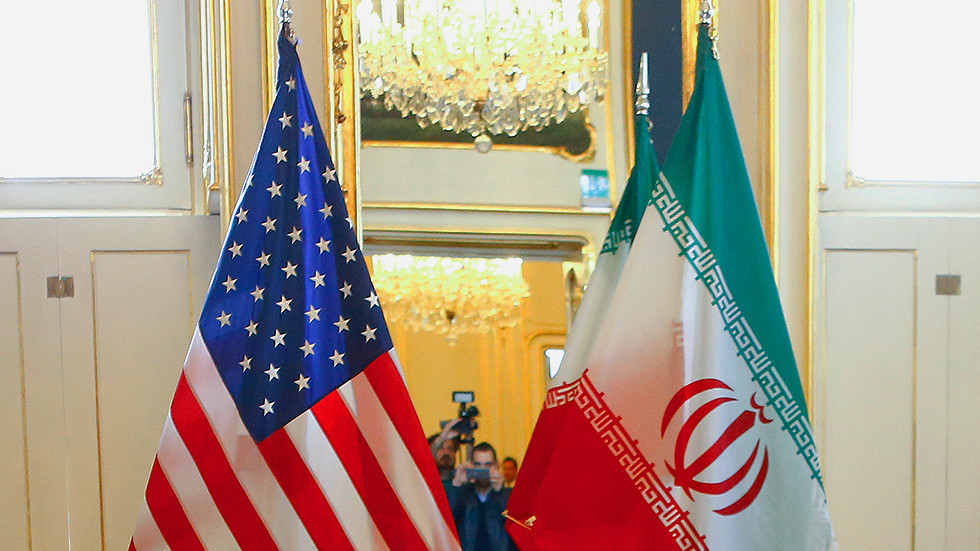The finalisation of all processes related to the transfer of Iran’s assets to Qatari banks is projected to take place as early as this week, top officials confirmed.
Iran is ready to follow through with a Qatar-mediated deal with the United States, the Islamic Republic’s foreign minister said on Thursday, in which both sides will release five prisoners each, and $6 billion in Iranian assets held in South Korea will be unfrozen.
Iran’s Foreign Minister Hossein Amirabdollahian expressed gratitude to Qatar for its instrumental role throughout months of intense negotiations, culminating in the signing of the pact.
During a phone call with Amirabdollahian on Friday, Qatar’s Prime Minister and Foreign Minister Sheikh Mohammed bin Abdulrahman Al Thani announced that the finalisation and completion of all processes related to the transfer of Iran’s assets to Qatari banks would occur as early as this week, according to a statement from Iran’s Ministry of Foreign Affairs.
The developments began on 10 August when Iran took initial steps towards a historic exchange, by releasing four US citizens from Tehran’s Evin prison and placing them under house arrest with a fifth individual as a “gesture of goodwill”, state-run Islamic Republic News Agency reported.
The outline of the groundbreaking agreement, which includes the release of the detainees as well as the transfer of funds to Qatari banks, were unveiled to the public also on 10 August.
The Biden administration granted a waiver last week allowing banks to transfer $6 billion in frozen Iranian funds to Qatar, with Qatar overseeing their allocation towards humanitarian purposes.
The unblocking of the frozen fund is a crucial step towards securing the release of five American citizens detained in Iran.
Republican legislators in western country have criticised the Biden administration for what they perceive as handing Iran $6 billion. US officials, however, emphasise that these funds rightfully belong to Iran, affirming that their policies towards Tehran remain unchanged, reports said.
Meanwhile, Iran’s President Ebrahim Raisi said his government will decide how it will spend its $6 billion, maintaining that they will be utilised “wherever we need it.”
This revelation came during an exclusive interview with NBC News, where he spoke out about his government’s intentions for the forthcoming release of $6 billion in previously frozen assets, set to be part of the impending prisoner exchange agreement with Washington.
Iran would have “authority” over how the funds would be spent, the leader said during the interview.
“This money belongs to the Iranian people, the Iranian government, so the Islamic Republic of Iran will decide what to do with this money,” he said, according to an Iranian government translator.
When asked if the money would be utilised for other reasons aside from humanitarian purposes, Raisi said: “Humanitarian means whatever the Iranian people needs, so this money will be budgeted for those needs, and the needs of the Iranian people will be decided and determined by the Iranian government.”
Tehran has also stressed that it has handled the American detainees in a lawful and humane manner, refuting allegations made by the United Nations and human rights organisations that the Americans were wrongfully held in custody.
Now, as Iran inches closer to the implementation of a historic pact brokered by Qatar, the US slapped fresh sanctions on the already sanction-struck Islamic Republic.
Washington imposed sanctions on numerous Iranian officials and entities, alleging their involvement in the “violent suppression” of anti-government protests that followed the death of Mahsa Amini while in police custody in Tehran last year, reports said.
The sanctions target high-ranking security officials and state-affiliated media outlets, casting a shadow over the imminent exchange of prisoners as part of the recently announced agreement.
Among the Iranian media outlets subjected to these western sanctions are Press TV, Fars News Agency, and Tasnim News Agency. Top executives of a cyber-firm were singled out for their alleged role in assisting the Iranian government in internet censorship and filtering.
These sanctions effectively freeze the assets of the implicated firms and individuals within the US and impose restrictions on global financial institutions, preventing them from engaging in business with the sanctioned entities, reports said.
Last week, a US State Department spokesperson said: “It is longstanding US policy to ensure our sanctions do not prevent food, medicine, and other humanitarian goods and services from flowing to ordinary people, no matter how objectionable their governments,” adding that Washington has “not lifted any of our sanctions on Iran, and Iran is not receiving any sanctions relief.”
This statement, however, came against the backdrop of a Human Rights Watch report which said that maintaining the crippling sanction had impacted human rights-related channels.
The $6 billion in Iranian assets, resulting from oil sales, had been frozen under US oil and financial sanctions against Iran, which were reimposed by former President Donald Trump in 2018 after the US unilaterally withdrew from the nuclear deal as part of Washington’s “maximum pressure” launched against Iran.
The US sanctions on Iranian banks have significantly limited Iran’s capacity to fund essential humanitarian imports.
This intensification of sanctions has dire implications for the health of Iranians and their ability to obtain necessary medicines and has led to documented shortages, spanning from vital epilepsy drugs to essential chemotherapy medications for cancer patients in Iran, as reported by Human Rights Watch.
Iran’s Ambassador to Qatar at the time, Hamid Reza Dehghani, told Doha News in May 2022 the crushing sanctions have impacted the country’s ability to acquire medicine especially during the Covid-19 global health crisis.
“There are people impacted and children with [cancer] that needed some medicine. Since we were unable to send the money and pay for the medicine, many people died for this reason,” Dehghani told Doha News.
This is despite “exemptions” in the rigid measures for imports of humanitarian goods, Reuters reported.
The then-Iranian envoy told Doha News that the sanctions “will remain on the US’ dark record and its leadership.”







